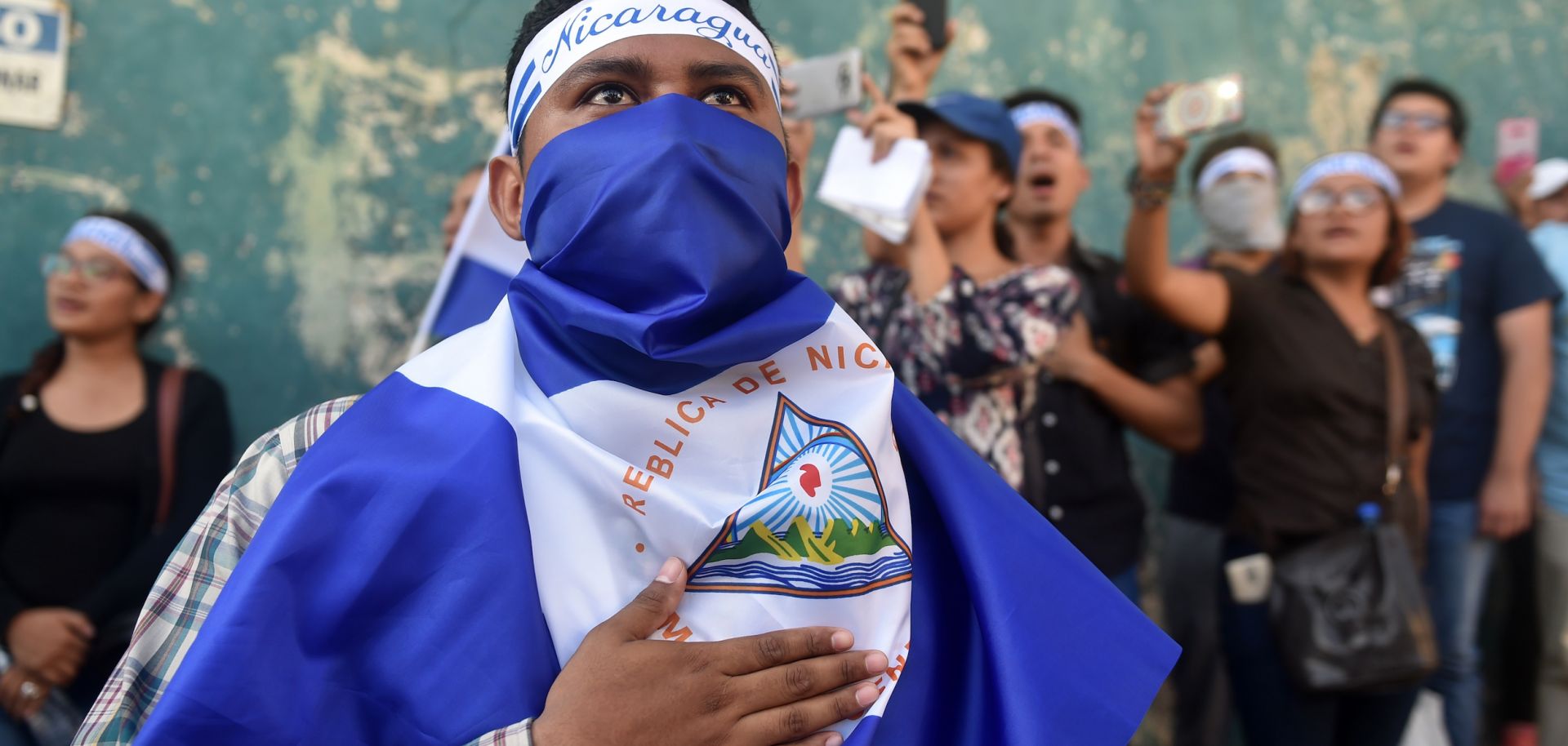ASSESSMENTS
How Nicaragua's Protests Could Spread Elsewhere in Central America
May 17, 2018 | 08:00 GMT

Widespread protests in Nicaragua are challenging the foundations of President Daniel Ortega's government. If he falls, the demonstrations could ignite unrest in neighboring Honduras and Guatemala.
(RODRIGO ARANGUA/AFP/Getty Images)
Highlights
- President Daniel Ortega will have to take some action to address the growing unrest, because he can no longer rely on the army to quell the protests.
- Ortega could resign ahead of presidential elections scheduled for 2021, or he could seek to remain in power by roping the opposition into a lengthy political dialogue.
- If protests successfully oust Ortega, political opponents of the Honduran and Guatemalan governments will likely intensify protests in those two countries.
Subscribe Now
SubscribeAlready have an account?
